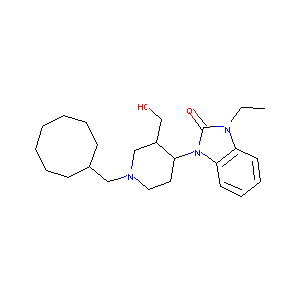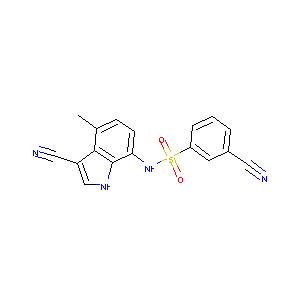| 1 |
Recurrent recessive mutation in deoxyguanosine kinase causes idiopathic noncirrhotic portal hypertension.Hepatology. 2016 Jun;63(6):1977-86. doi: 10.1002/hep.28499. Epub 2016 Mar 31.
|
| 2 |
Emerging drugs for irritable bowel syndrome. Expert Opin Emerg Drugs. 2006 May;11(2):293-313.
|
| 3 |
ClinicalTrials.gov (NCT00309179) A Phase II Study of the Safety and Efficacy of E7820 Plus Cetuximab in Colorectal Cancer, Preceded by a Run-in Study in Advanced Solid Tumors. U.S. National Institutes of Health.
|
| 4 |
Phase I study of E7820, an oral inhibitor of integrin alpha-2 expression with antiangiogenic properties, in patients with advanced malignancies. Clin Cancer Res. 2011 Jan 1;17(1):193-200.
|
| 5 |
Nocistatin and nociceptin given centrally induce opioid-mediated gastric mucosal protection. Peptides. 2008 Dec;29(12):2257-65.
|
|
|
|
|
|
|


